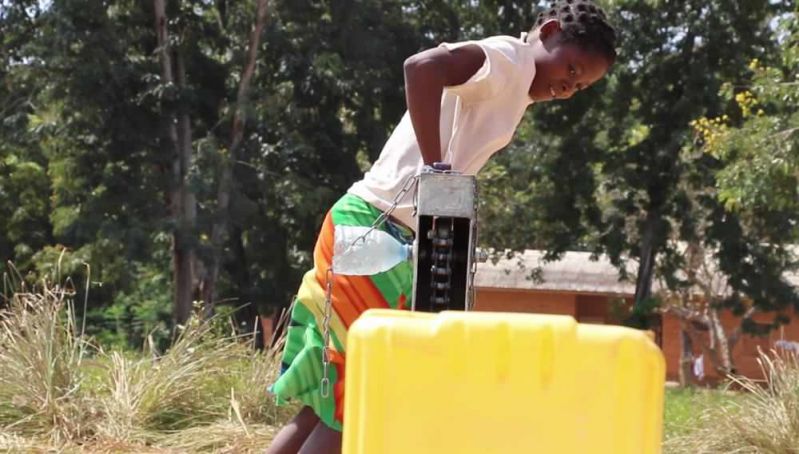Safe Water Transforms a Community in Unexpected Ways
Published on by Water Network Research, Official research team of The Water Network in Social
'Providing water is about much more than a physical commodity. Around the new boreholes, when people gather, they have no choice but to talk to each other, and to leave the past and the hatred behind.'
Blog by Christophe Belandombi

Mariane, 17, fled the conflict with her family in 2013. She comes to pump water at a well near the edge of town; UNICEF Rose
The conflict in the Central African Republic follows a line that is the boundary between the savannah and the tropical interior of Central Africa. On that line is Bossangoa, a city at the centre of a range of conflicts that gripped the country in 2013 and 2014.
Residents fled to displacements camps and across the border to Cameroon and Chad.
When they returned, a horrific sight awaited them: Not only had their homes and schools been destroyed, and everything of value either taken or burned, but, in an act of perverse vengeance, the armed groups had thrown dead bodies of citizens who’d not been able to leave, down the wells, poisoning the water.
As a WASH specialist in Bossangoa, I have seen how the crisis has had lasting consequences for people’s health, well-being and survival. I know that clean water is key to rebuilding a nation.
In Bossangoa we started out with water trucking and we began building new boreholes. It was an exciting and ambitious project.
Because of the geography of Bossangoa, it’s impossible to dig a well 20 metres deep and find water. You have to go much deeper. UNICEF brought experts and equipment worth millions of dollars into a volatile, high-security environment.
Little by little, UNICEF’s boreholes started to take shape across the city. There are now 30 of them.
After the bores were drilled, each hand pump was assigned a coordinator, to organize the queue at the pump, and to make sure every person was being served.
Each pump was given a community association, with a treasurer and president who’re responsible for making sure that the pump is maintained. They collect a small fee each time a household fills up a bucket, also known as a bidon, and the money goes into a fund which helps to the community to respond quickly to fix the pump when needed.
Providing water is about much more than a physical commodity. Around the new boreholes, when people gather, they have no choice but to talk to each other, and to leave the past and the hatred behind. We’re not only building wells, we are also playing a crucial role into rebuilding peace and social cohesion in the city.
The project has changed the community in every way. The wells have created a space where community members can come together and talk about how water really brings them together and makes them connect to each other. If there are issues they get worked out, if there are disputes they get talked through. The water plays more than just the role of a primary ingredient to life, but it’s provided a primary base for the community to connect, to be together, and to use that time to reflect on what they’ve been through.
Three years on, the boreholes are all fully functional. The communities that manage these wells are all thriving and well on the road to recovery. Children benefit from drinking clean, easily accessible water; mothers know that their children are not going to get sick.
Read full blog: UNICEF
Media
Taxonomy
- Water Access
- Water Cooperation & Conflict
- Access
- Water Supply
- Well Drilling
- Community
- Water Sanitation & Hygiene (WASH)